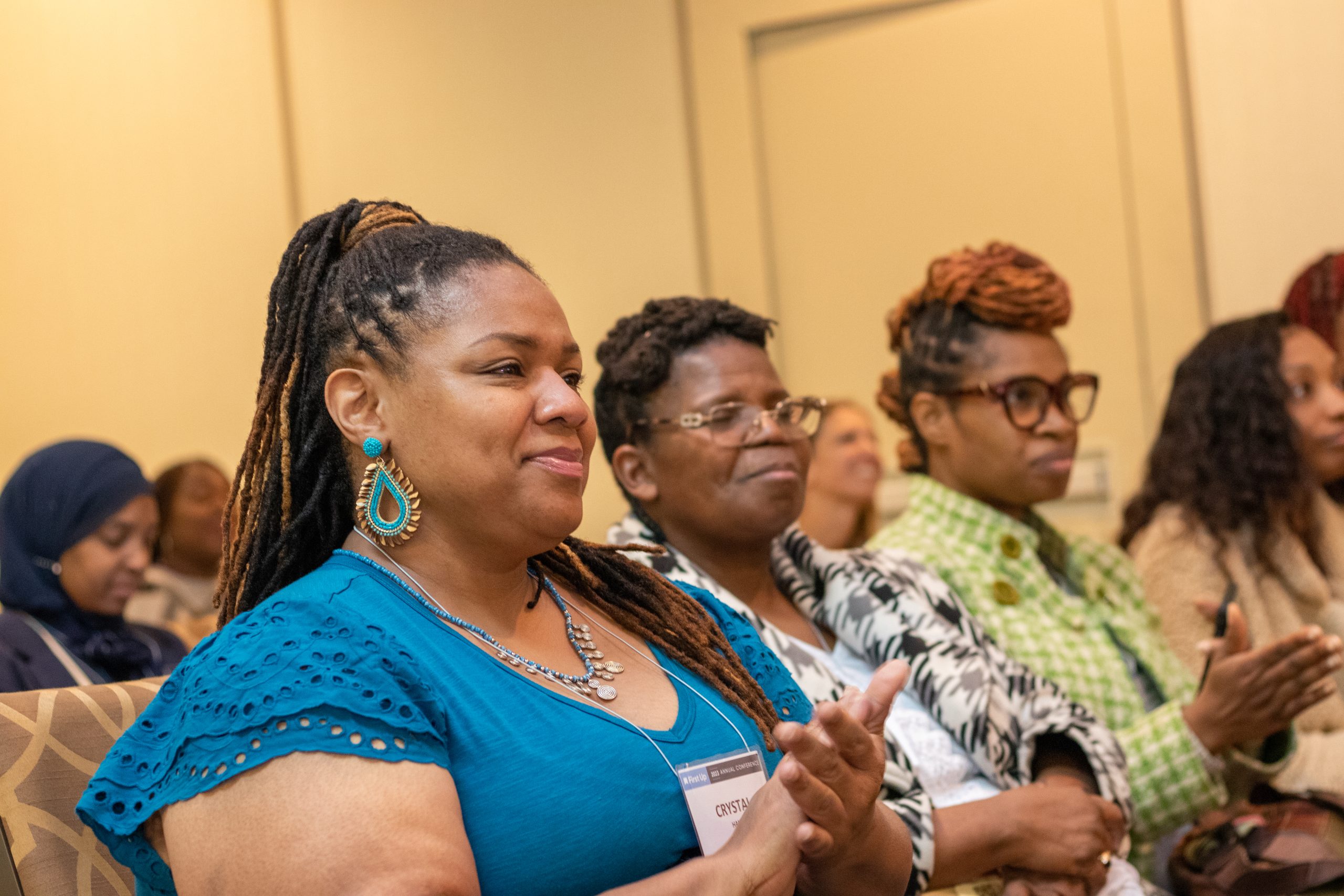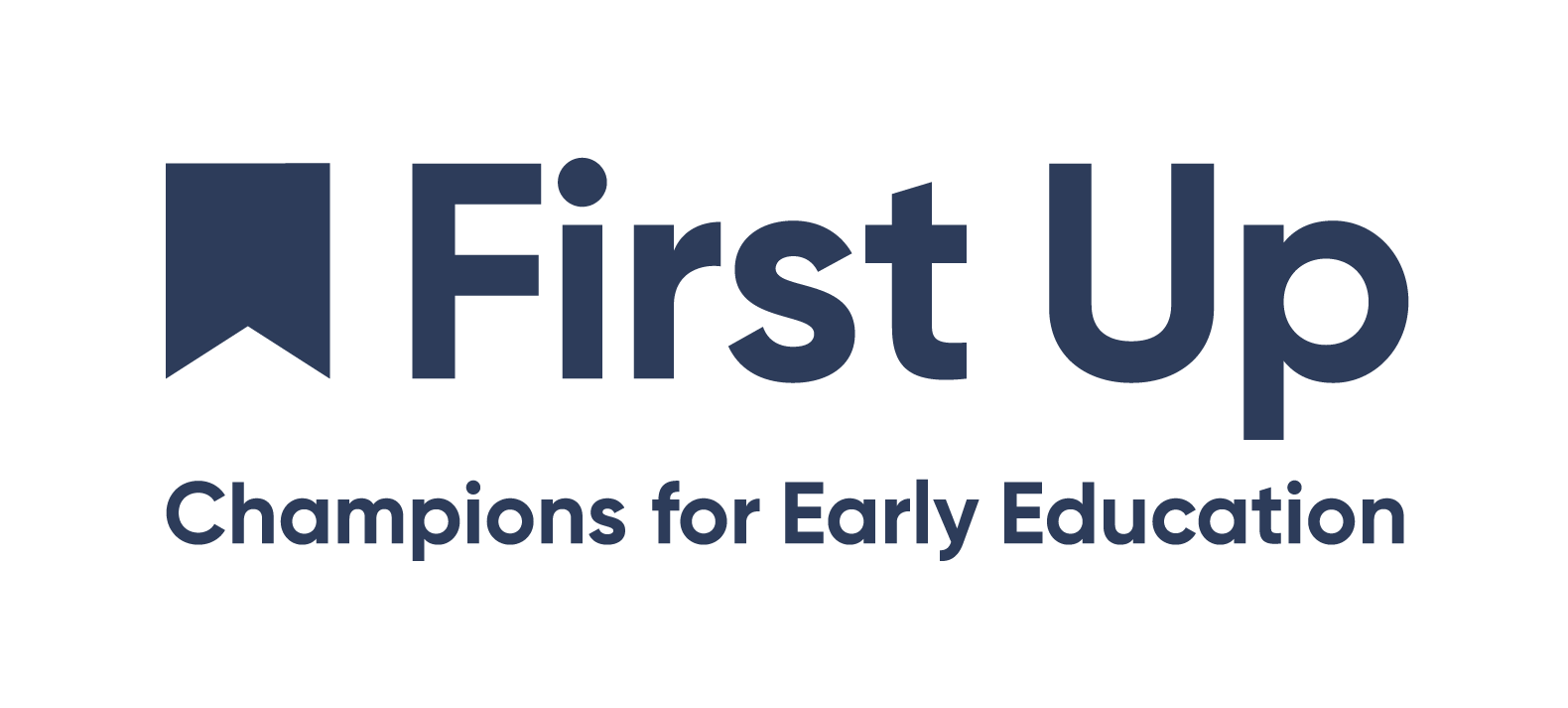P.R.I.D.E. in Philly
First Up is partnering with the P.R.I.D.E. Program (Positive Racial Identity Development in Early Education) at the University of Pittsburgh to implement a model that will educate teachers, program directors, families, and system leaders in Philadelphia regarding racism and inequity and empower them with tools and resources to implement change on behalf of the children they serve.
Join Us For The Cultivating P.R.I.D.E Training Series!
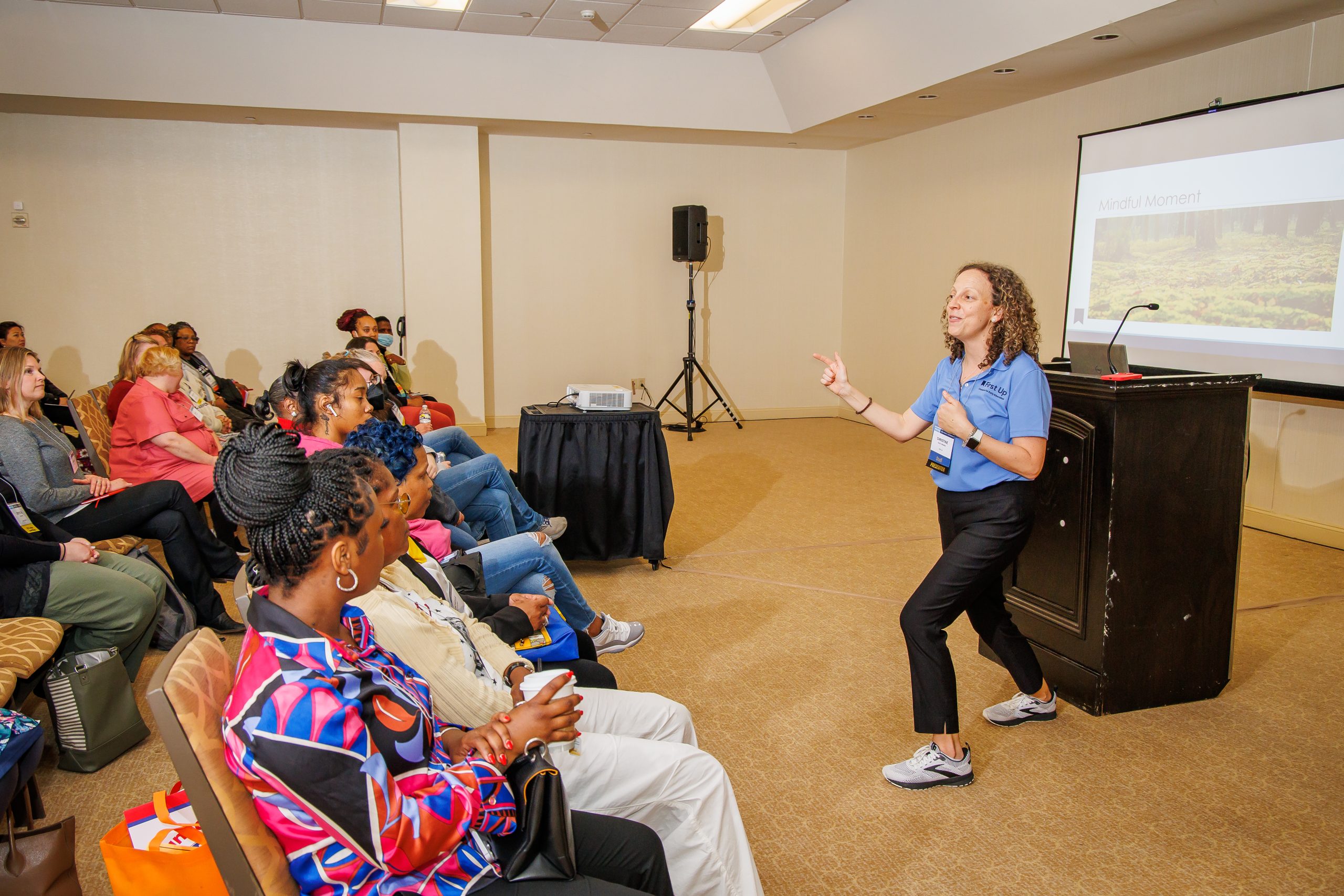
You are invited to attend Reflections & Strategies for Positive Racial Identity Development in Young Children—a transformative five-part training series designed to empower educators in fostering positive racial identity in young Black children. This series is available both in-person and virtually, offering flexibility for busy educators. Participants will earn 10 Pennsylvania Quality Assurance System (PQAS) credits upon completion.
BONUS: Attend all five sessions and stand a chance to receive a book bundle giveaway to enrich your classroom library!
Don’t miss this opportunity to deepen your practice and make a lasting impact. Click the links below to register today!
Session List
-
July 17th-Session 2: Who Are We? An Introduction to RACE in America
- July 24th-Session 3: What Is My Role? Race and My Profession
- August 7th- Session 4: What About Children? Race, Healthy Development, and Positive Racial Identity
- August 14th-Session 5: What Can I Do? Developing PRIDEful/Racial Awareness Strategies
P.R.I.D.E. Teacher Village
P.R.I.D.E. in Philly Teacher Cohort is a forum for exploring, sharing, and utilizing information and resources that will enable teachers to support young children’s positive racial identity development. It’s an exciting experience that gives early childhood teachers and caregivers the opportunity to discover and grow together as part of a tightly knit group dedicated to learning about and understanding how race impacts young children.
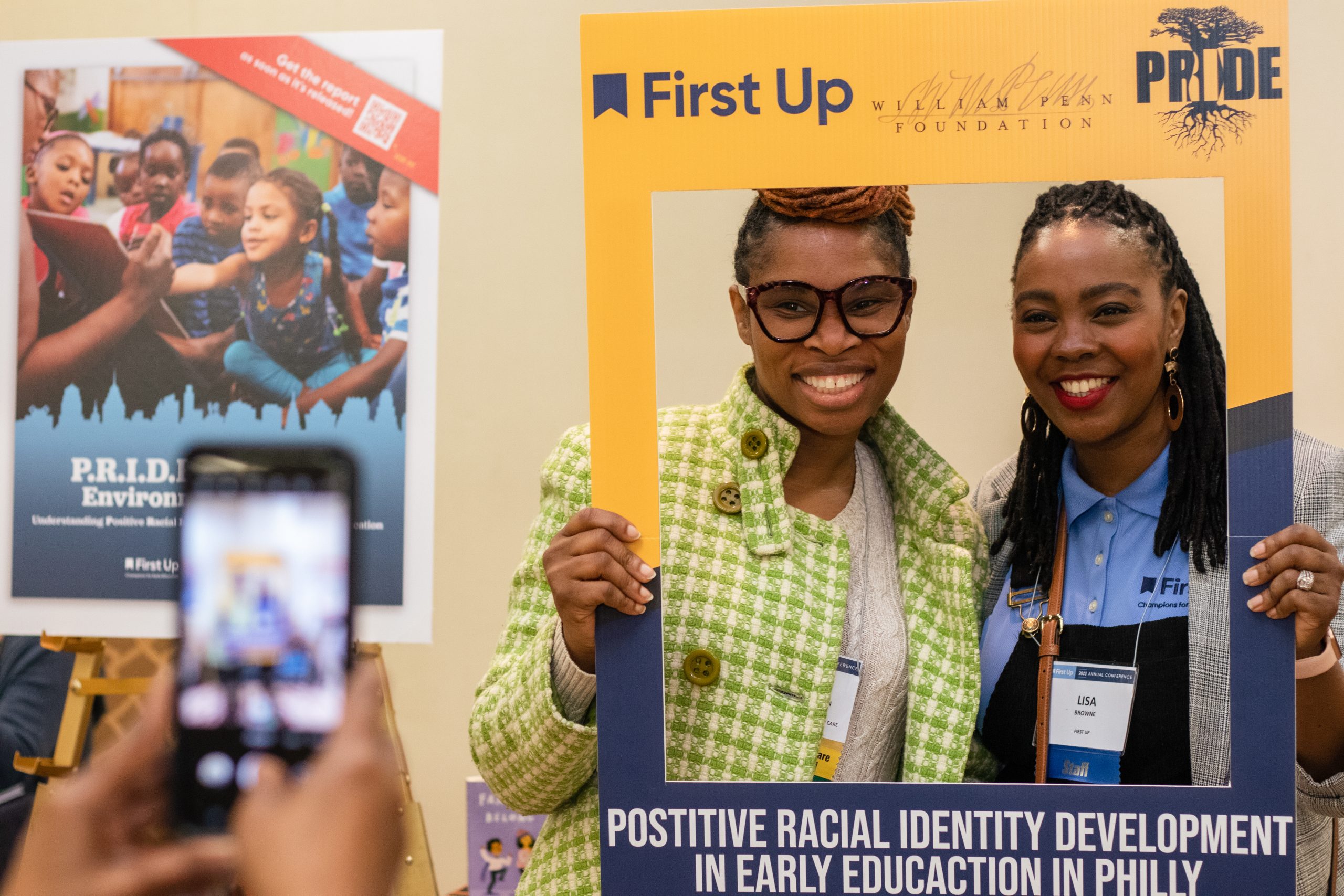
The P.R.I.D.E in Philly Environmental Scan is HERE!
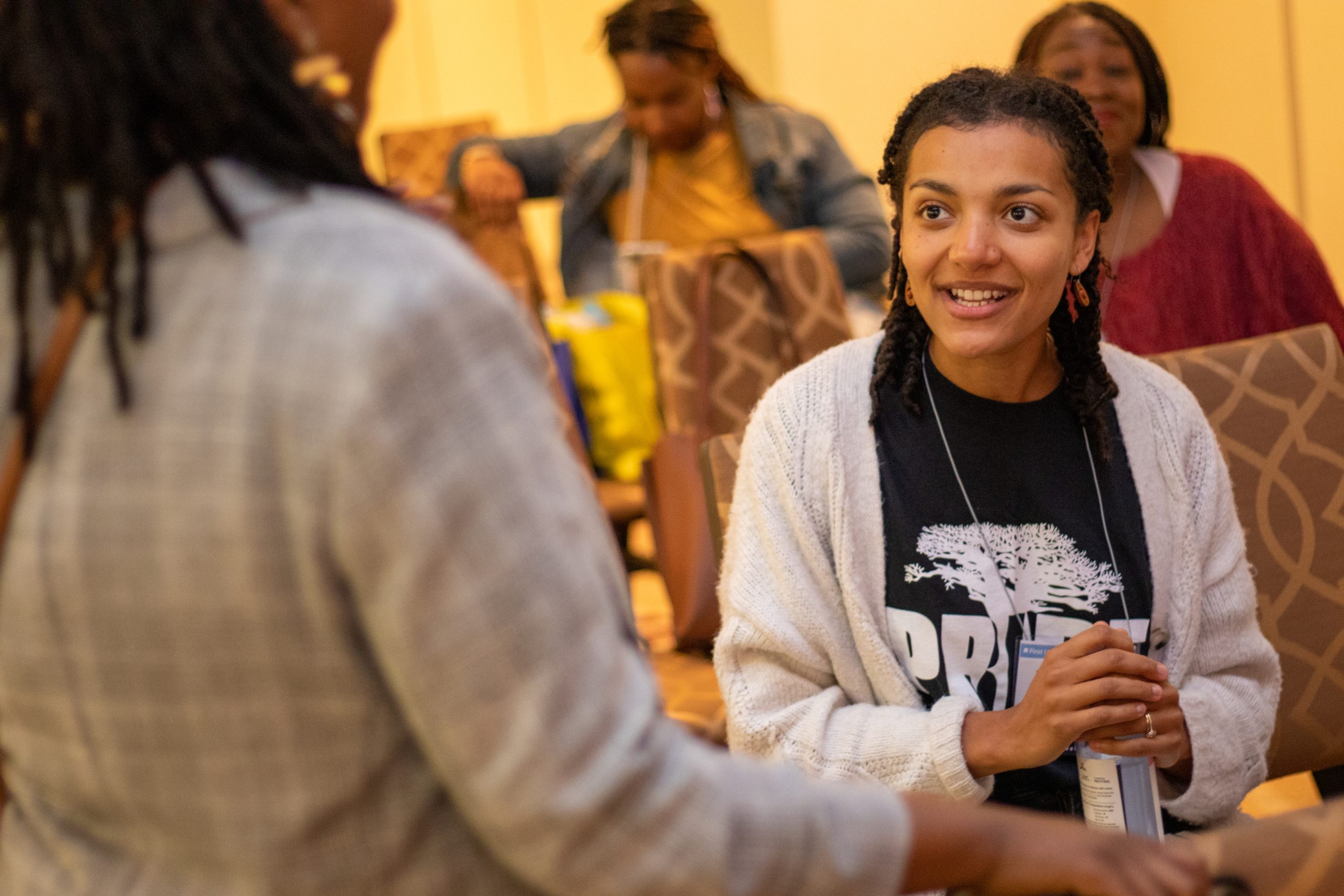
The P.R.I.D.E. in Philly Environmental Scan, Understanding Positive Racial Identity Development in Early Education is a thorough environmental scan of the Philadelphia area created to better understand racial disparities, attitudes, and awareness of positive racial identity among parents and educators who are seeking the knowledge and resources needed to support young children’s positive racial identity development.
Click HERE to download the full Environmental Scan
Watch Our In-Depth Webinar
Watch the P.R.I.D.E in Philly Environmental Scan Webinar! If you want an in-depth exploration of the discoveries, recommendations, and next steps from the P.R.I.D.E. in Philly Environmental Scan this webinar is one you have to watch!
What Is P.R.I.D.E?
P.R.I.D.E stands for Positive Racial Identity Development in Early Education. Young children developing positive racial identity is a key aspect of healthy, whole child development. "For young children within the ages of 3 to 8, having a positive racial identity means feeling good about one’s physical features, heritage, and history. This concept is vitally important to young Black children’s healthy growth and development, and it’s one backed by research. Studies have shown that when young Black children are socialized to see themselves in positive ways, those attitudes can lead to positive outcomes like increased test scores, better factual recall, and improved problem-solving skills. Backed by the knowledge and understanding of this research, the P.R.I.D.E. Program was designed to be a protective factor for young children, ages 3 to 8, who are often inundated with social messages that can lead them to prefer White."
When our children have P.R.I.D.E., they have improved behavior, increased memory recall, and can better grasp factual knowledge and information within school settings, with even more benefits for older children. When our children know, understand, and can celebrate their Blackness, they are better able to navigate and combat the oppression they experience living within a racist society. The P.R.I.D.E. Program's work began in Pittsburgh, PA, as a comprehensive, positive, fun strategy to help the primary adults in young Black children's lives learn P.R.I.D.E skills and experience PRIDE-full environments to help them develop positive racial identity. In an exciting turn, P.R.I.D.E.'s work has expanded to Philadelphia, partnering with First Up, to create P.R.I.D.E. Project Philly.
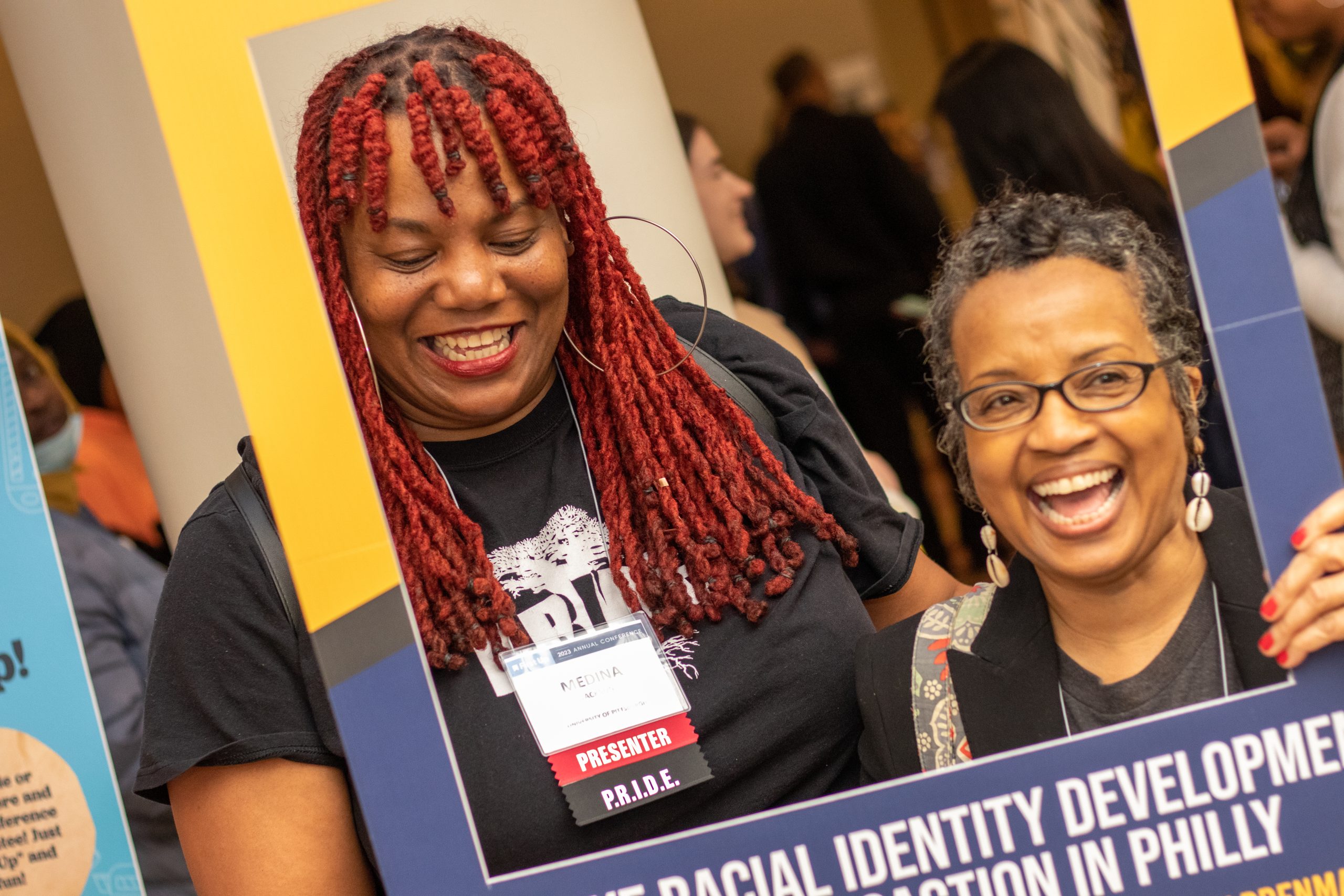
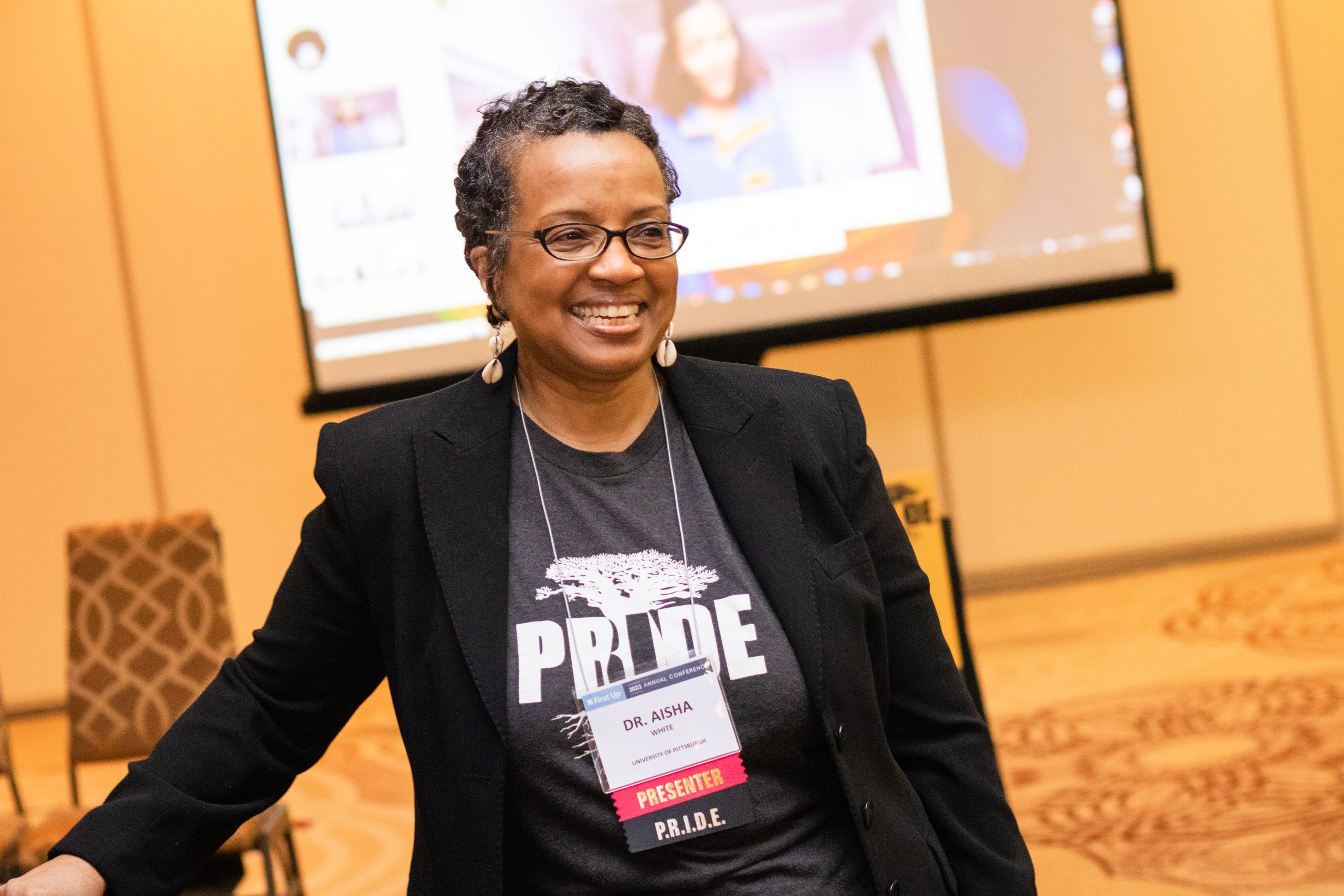
P.R.I.D.E. Research and Evaluation
2016 Environmental Scan
Positive Racial Identity Development in Early Education: Understanding P.R.I.D.E. in Pittsburgh. The goal of the P.R.I.D.E. scan was to further explore the intersection of race and young children in Pittsburgh. It drew on the latest race studies as well as interviews with parents, educators, and key informants; surveys of parents and teachers; classroom observations; and guidance from a local advisory committee. The work sought to answer critical questions about what is already known about positive racial identity, what work was being done to support it, and what holes existed in resources, training, and information. Findings from the study informed each component of the P.R.I.D.E. program. Read more below!
2016 P.R.I.D.E. in Pittsburgh Environmental Scan
.
P.R.I.D.E. Professional Development
Participants will:
- Gain knowledge about the history of race, how children are impacted by it, and acquire tools and strategies for responding to racial issues.
- Gain the ability to proactively introduce conversations and activities that enable children to understand racial (physical) differences.
- Acquire ways to use objective learning about race and physical difference to facilitate children's more advanced cognitive understandings of ‘race’.
- Gain a foundation for open conversation about race in the early childhood profession to sustain and build on what is learned.
- Earn 20 PQAS credit for full participation.
